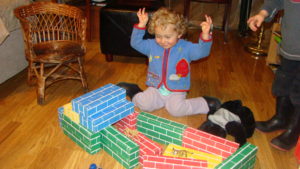Helping Children to Forgive
Forgiving someone can be one of the greatest forms of giving. Writing about it in my new book, Growing Generous Souls, I’m reminded of how difficult it can be, but also how life-changing and rewarding it is for both the receiver and the giver.
Above all, forgiveness is a process, and loads of studies have been done on its positive effects among adults. As one colleague told me, forgiving someone is like peeling an onion, layer by layer. Depending upon the gravity of the offense and other factors, it may take a lifetime to come to terms with what the person has done and emotionally distance oneself from it.
An article 1 I read recently emphasized that forgiveness can be modeled and taught from childhood on up. Sarah Wheeler, the writer, suggested  that we work on three aspects, to help our kids practice forgiveness and learn the nuances of their relationships:
that we work on three aspects, to help our kids practice forgiveness and learn the nuances of their relationships:
- Model forgiveness for children in your own life. Talk about when and why you forgive others, and tell them clearly when you are forgiving them for something.
- Help kids through the steps of forgiveness. (See the article for more on the steps.) When a child is wronged, help them to acknowledge the harm that was done. Let them see it is okay to feel hurt, and to find someone they can talk to about it.
- Teach them what forgiveness really means. When processing problems, let children know forgiving is not condoning what someone has done, and that it not only can help others, but also ourselves, so we can let go of our anger.
How do you relate to children in your life? Do you have opportunities to model and teach about forgiveness?
Your partner in ministry,
Betsy Schwarzentraub


